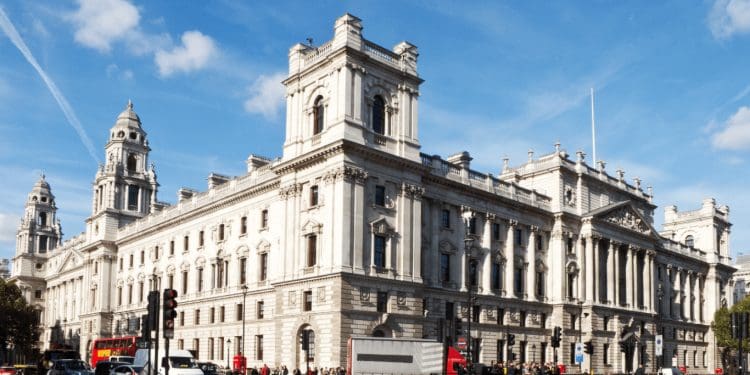- The UK has implemented tax exemptions for foreigners who choose to work with local brokers and investment managers.
- According to HMRC, the exemption is crucial in attracting global crypto investors.
- HRMC crypto tax guide spells out taxable crypto activities and how investors are to pay their taxes.
- UK Prime Minister intends to see Britain become a global crypto investment and technology hub.
The UK has introduced crypto tax exemptions to non-UK residents purchasing cryptocurrency through authorized local brokers and investment managers. The tax break was announced in December 2022 as part of Prime Minister Rishi Sunak’s plan to make the United Kingdom a crypto hub and went into effect on Sunday.
“This exemption is an important factor in attracting global investors, meaning foreign investors won’t be brought into UK tax simply by appointing U.K.-based investment managers,” HM Revenue and Customs wrote in an email to CoinDesk. “To build upon the UK’s position as an investment management hub, this exemption has been extended to include crypto assets so that funds which include them aren’t put off from appointing UK managers.”
The UK parliament is debating on the Financial Services and Markets Bill, which, if passed, would give local financial regulators broader authority over cryptocurrencies. In the coming weeks, the UK Treasury will initiate a consultation on regulating the crypto industry.
The UK Ultimate Crypto Tax Guide
HRMC published its ultimate crypto tax guide last year, with detailed rules for crypto investors on how and when to pay and the percentage of taxes to spend on their assets. According to the guide, crypto asset holders must pay taxes on- profit, payments (made to them or otherwise), and inherited crypto assets.
Crypto miners and those engaged in staking are also subjected to income tax deductions. Exemptions to the law include airdrops gotten under specified scenarios, transfer of crypto between self-owned wallets, gifted crypto, and HODL’ing crypto.
Individuals are to pay capital gains tax starting at 10% on their total gains if it exceeds £12,300. To pay taxes on crypto, investors can use HMRC’s real-time capital gains tax reporting service or report total gains on their annual self-assessment tax return.
Better Regulations for the Crypto Sector
The UK Treasury is taking steps to finalize deals for sweeping rules to regulate the crypto industry, including limits on foreign companies selling into the UK, provisions for dealing with company failures, and restrictions on product advertising.
The new powers will help the Financial Conduct Authority oversee crypto more broadly, including monitoring how companies operate and advertise their products and checking the activities of money laundering rampant across crypto channels. The powers will be established through the financial services and markets bill.
City minister Andrew Griffith spoke on the bill in December last year, informing the public that the government’s ambitions regarding crypto had stayed the same in the face of FTX’s collapse.
Speaking to the Financial Times, a Treasury spokesperson added, “The government has already taken steps to bring certain crypto assets activities into the scope of UK regulation — and will consult on proposals for a broader regulatory regime.”
The UK’s Future Plans for Crypto
Even before he was sworn into office, Rishi Sunak, UK’s Prime Minister, had severally expressed his goal of seeing Britain become a global crypto investment and technology hub. While serving as Chancellor, the pro-crypto Minister pushed the Financial Services and Markets Bill, which, if passed into law, could give local regulators broad power over the crypto industry.
Sunak reiterated his intention in January last year.
“Crypto assets can provide exciting new opportunities, offering people new ways to transact and invest – but it’s important that consumers are not being sold products with misleading claims. We are ensuring consumers are protected while supporting the innovation of the crypto asset market.”
Going ahead to reaffirm his stance in April;
“It’s my ambition to make the UK a global hub for crypto assets technology, and the measures we’ve outlined today will help to ensure firms can invest, innovate and scale up in this country,” he commented.
The British government also stated that stablecoins would be recognized as a valid form of payment as part of broader plans to make Britain a global hub for crypto assets, technology, and investment.
Furthermore, the government stated that it “will investigate ways to improve the competitiveness of the UK tax system to encourage further development of the crypto assets market in the UK.












